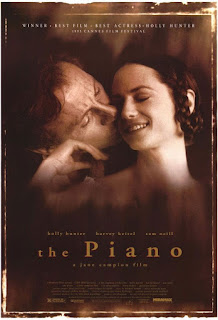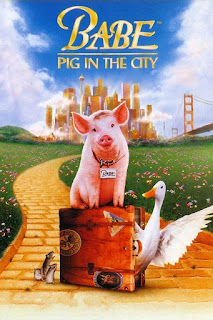September 1st: TWENTIETH CENTURY (Howard Hawks, 1934)
A Broadway impresario attempts to rekindle his professional and personal relationship with the ingenue he turned into a big star.
Successful playwriting/screenwriting team Ben Hecht and Charles MacArthur (The Front Page, later filmed at His Girl Friday), had one of their biggest hits with Twentieth Century, adapted from an older play based on a real-life Broadway figure. When screenwriter Preston Sturges (Sullivan's Travels) failed to complete a script, Columbia Pictures went back to the original writers to adapt their own work.
Several directors were attached before the project went to future legend Howard Hawks, a producer, writer, and director who was a big name at Fox Studios in the silent era, and had at least two considerable success in sound with The Dawn Patrol and influential gangster film
Scarface. His films usually centered around groups of working men, usually of the blue collar sort, made him an odd match for a high society comedy.
Hawks first recruited stage and screen icon John Barrymore, arguably the biggest star of his era, whose range included Shakespearean tragedy as well as broad comedy and farce, and
whose off-screen alcoholism presented challenges throughout his career. Barrymore was lured to the role with the suggestion of being able to go as hammy and exaggerated as he wanted to.
Studio head Harry Cohn approached a number of notable names for the female lead, but gave into Hawks's insistence on borrowing fledging actress from Paramount Pictures, who the director believed had not been used to her full potential. After a rocky start, Hawks gave
Lombard the push to be more aggressive and loose with her performance. Soon he urged the pair to go off-script and improvise if they desired, developing the trademark comedic style Hawks would become known for, featuring rapid-fire dialogue mixed with slapstick.
Despite good reviews, the film failed to perform well at the box office, but turned Lombard into a major comedic star, and is considered the beginning of the screwball
comedy genre along with Frank Capra's It Happened One Night from the same year.. Barrymore named it as his favorite performance and many consider his his best, and he would remain good friends with Lombard until her untimely death in 1942.









Comments
Post a Comment